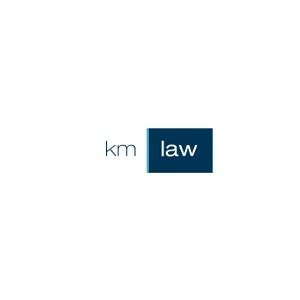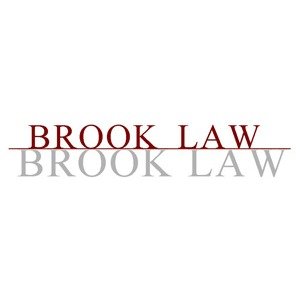Best Elder Abuse Law Lawyers in New Zealand
Share your needs with us, get contacted by law firms.
Free. Takes 2 min.
Or refine your search by selecting a city:
List of the best lawyers in New Zealand
About Elder Abuse Law in New Zealand
Elder Abuse Law in New Zealand is designed to protect older individuals from various forms of abuse or neglect. This type of law covers a range of issues including physical, emotional, psychological, and financial abuse, as well as neglect and deprivation of necessary care. The law seeks to ensure that older people are treated with dignity and that their rights are safeguarded, providing them legal recourse and protection against perpetrators. Legal frameworks, such as the Protection of Personal and Property Rights Act 1988, offer mechanisms to address and remedy cases of elder abuse.
Why You May Need a Lawyer
Engaging a lawyer in cases of elder abuse is essential for several reasons. Legal professionals can offer invaluable support in identifying and substantiating claims of abuse, navigating the complex legal system, and representing the interests of aggrieved parties. Common situations that may require legal help include suspicions of financial exploitation by a family member or caregiver, disputes over guardianship, and cases where physical or psychological harm is suspected. Lawyers can also assist in ensuring the imposition of protection orders or applying for guardianship when an elder cannot take care of themselves.
Local Laws Overview
In New Zealand, elder abuse is tackled through various legislative measures such as the Domestic Violence Act 1995 and the Protection of Personal and Property Rights Act 1988. The Protection of Personal and Property Rights Act, in particular, facilitates the appointment of a welfare guardian or property manager for elders who cannot make decisions for themselves. The Family Court plays a significant role in these processes, ensuring the elder's needs and rights are central to any decision. Additionally, the Family Violence Act 2018 provides measures to protect individuals from family violence, which includes elder abuse, ensuring victims have the means to seek intervention and protection.
Frequently Asked Questions
What constitutes elder abuse in New Zealand?
Elder abuse includes physical, emotional, financial, or psychological harm, as well as neglect, that is inflicted upon older adults, often by family members or caregivers.
How can I report suspected elder abuse?
Suspected elder abuse can be reported to agencies such as the police, Age Concern New Zealand, or social services that specifically deal with elder care and protection.
Can I apply for guardianship over an elderly relative?
Yes, under the Protection of Personal and Property Rights Act, you can apply to be a welfare guardian or property manager if the elder cannot make decisions independently.
What legal actions can be taken against perpetrators of elder abuse?
Legal actions could include filing for protection orders, seeking damages for financial exploitation, or pursuing criminal charges if applicable.
How does the Family Court support elder abuse cases?
The Family Court can intervene by assigning guardians, managing property, or imposing protection orders to safeguard the elder’s wellbeing.
Are there any specific laws protecting elderly individuals from financial abuse?
Yes, the Protection of Personal and Property Rights Act provides a framework for protecting elderly individuals from financial exploitation by enabling oversight and management of their finances.
Can elder abuse occur in nursing homes, and what can be done about it?
Yes, elder abuse can occur in institutional settings. Complaints can be directed to the Health and Disability Commissioner for investigation and resolution.
Who can be held accountable for elder abuse?
Anyone from family members to caregivers and other individuals responsible for the elder’s wellbeing can be held accountable if found guilty of elder abuse.
What role do social services play in dealing with elder abuse?
Social services assess cases of suspected abuse, offer support to victims, and may intervene directly to help ensure the elder’s safety and care.
How can I ensure my elder relative’s rights are respected?
Ensuring the rights of elder relatives involves being vigilant of their treatment, understanding their rights under New Zealand law, and seeking legal advice when needed.
Additional Resources
Key resources include Age Concern New Zealand, which offers advice and support for elder abuse cases. The Ministry of Health and the Health and Disability Commissioner provide guidance on health-related elder care issues. Legal aid services can also assist those in need of professional legal advice.
Next Steps
If you suspect elder abuse or need legal advice regarding elder law, the first step is to consult with a legal professional specializing in elder law. They can provide guidance on gathering evidence, understanding your legal rights, and taking appropriate legal action. Contact your local legal aid service or a law firm that handles elder abuse cases in New Zealand for immediate assistance. Remember to keep meticulous records of any incidents or concerns related to the elder's wellbeing.
Lawzana helps you find the best lawyers and law firms in New Zealand through a curated and pre-screened list of qualified legal professionals. Our platform offers rankings and detailed profiles of attorneys and law firms, allowing you to compare based on practice areas, including Elder Abuse Law, experience, and client feedback.
Each profile includes a description of the firm's areas of practice, client reviews, team members and partners, year of establishment, spoken languages, office locations, contact information, social media presence, and any published articles or resources. Most firms on our platform speak English and are experienced in both local and international legal matters.
Get a quote from top-rated law firms in New Zealand — quickly, securely, and without unnecessary hassle.
Disclaimer:
The information provided on this page is for general informational purposes only and does not constitute legal advice. While we strive to ensure the accuracy and relevance of the content, legal information may change over time, and interpretations of the law can vary. You should always consult with a qualified legal professional for advice specific to your situation.
We disclaim all liability for actions taken or not taken based on the content of this page. If you believe any information is incorrect or outdated, please contact us, and we will review and update it where appropriate.
Browse elder abuse law law firms by city in New Zealand
Refine your search by selecting a city.















